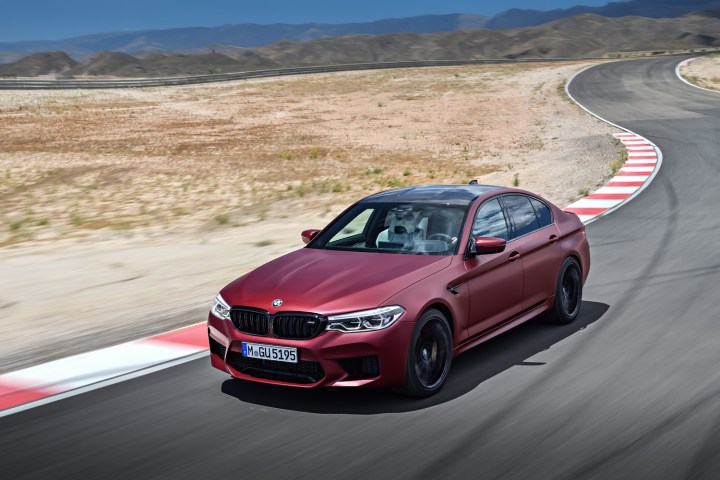
It seems everyone’s catching on to electrifying performance models with hybrid technology. Word on the street is that BMW’s renowned M Division will be hopping on the hybrid electrification bandwagon with its performance cars.
This appears to be a growing trend as companies like Lexus even suggested that a gas-electric hybrid lineup is in the future of its performance “F” brand.
“For sure, all M vehicles will be electrified by the end of the next decade,” Frank van Meel, BMW’s M chief, told journalists at Australian-based CarAdvice at a press conference for the updated BMW M5 Competition and M2.
“That’s going to happen step-by-step. The important question is the timing question – what’s the right time for that? If you’re too late then you’re too late, but if you’re too early then you don’t have the ‘straight to the point’ technology,” Van Meel continued. “Look at today’s electrification components, they are quite heavy and, for us as a motorsports company, overall vehicle weight and power-to-weight ratio is key.”
In previous discussions, BMW also predicted that up to 40 percent of its cars produced might be powered by some sort of electrified powertrain by 2025.
As ambitious of a plan that may be, BMW M doesn’t really find itself to be in much of a rush to electrify its models. But it is working rigorously behind the scenes to make sure the technology is there, ready, and dependable to be rolled out into production.
Currently, the company is hard at work developing its fifth-generation architecture. The new platform will enable BMW to provide customer options for powertrains. But it will also increase the availability of electric or hybrid models throughout its lineup as BMW continues to work toward its goal for increased electrification.
BMW is not only developing its own platform — the company is also developing its own electric motor and gearbox combination unit that will serve future hybrid and electric models. By developing its own components from the ground up and not relying on an outside source, BMW is confident that it can build its own technical know-how for these products.
Altogether and said, you can bet that halo models like the BMW M3 and the M5 will be getting electrified in the not-so-distant future.
Editors' Recommendations
- The BMW i7 M70 is an electric limousine that does supercar speeds
- The best BMWs of all time
- BMW will launch an electric version of one of its most popular models in 2020
- BMW stripped weight and added power to make its pint-sized M2 even better
- Volkswagen is willing to share its electric car tech with BMW and others


